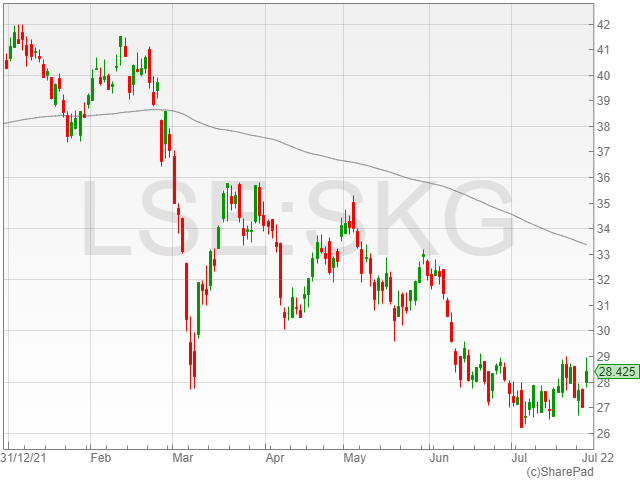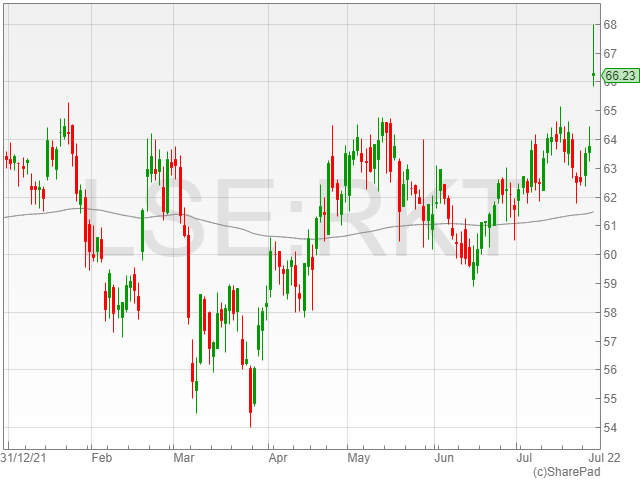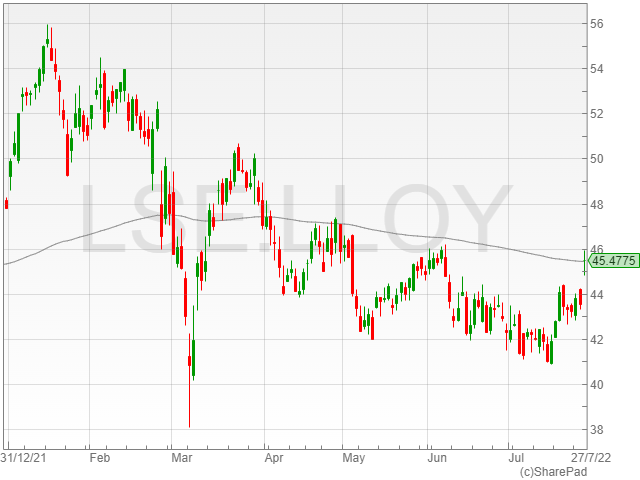The FTSE 100 gained 0.5% to 7,343.8 in early afternoon trading on Wednesday as upbeat earning from the US and Europe helped improve sentiment.
“The FTSE 100 was higher on Wednesday morning, buoyed by some positive corporate results and news from the US overnight as Microsoft and Alphabet reported numbers which were not as bad as some may have feared,” said AJ Bell investment director Russ Mould.
“US stocks had fallen ahead of the tech giants’ earnings thanks to Walmart’s profit warning. Although Microsoft and Google-owner Alphabet were behind expectations, it turned out to be only modestly so.”
US markets were in optimistic territory ahead of the US Federal Reserve’s interest rates decision, with the Dow Jones climbing 0.4% to 31,869 in pre-open trading, the S&P 500 rising 0.8% to 3,956.5 and the NASDAQ gaining 1.3% to 12,276.2.
“All the focus tonight will be on the US Federal Reserve and whether it does or says anything to upset what remains a rather jittery market,” said Mould.
FTSE 100 companies
In the UK, FTSE 100 companies had a strong midweek showing of results, including Smurfit Kappa, Reckitt Benckiser and Lloyds.
Smurfit Kapa shares soared 4.5% to 2,834p after the group reported a double-digit revenue rise in HY1 2022 and a pre-tax profit growth of 86% to €6.3 billion against €4.6 billion the year before.
“Our strong performance is a result of the many actions we have taken over a number of years,” said Smurfit Kappa CEO Tony Smurfit.
“These actions include significant customer-focused investments to meet growth, providing paper-based packaging in the marketplace and selective acquisitions ensuring security of supply to our customers.”

Reckitt Benkiser shares climbed 4.2% to 6,644p following a swing to a pre-tax profit of £1.6 billion in HY1 2022 from a pre-tax loss of £1.9 billion last year, on the back of lower operating costs.
Meanwhile, net operating expenses fell 60% to £2.2 billion compared to £5.6 billion and revenues rose 4.4% to £6.8 billion against £6.6 billion year-on-year linked to rising demand for US Nutrition products due to the infant formula shortages suffered across the Atlantic.
“A short-term boost from a shortage of baby formula in the US, after a shutdown at a competitor, has undoubtedly contributed to the impressive results but there were other positive signs too,” said Mould.
“Sales of cold and flu remedies did well as Covid becomes endemic in many populations. And, in any case, demand for cleaning products and medicines should remain pretty resilient whatever the economic backdrop.”

However, Mould pointed out that the cost of living crisis might see the company’s branded products take a hit as customers weigh up the justification of branded products at a time when household budgets are shrinking.
“The concern for Reckitt will be that squeezed consumers realise they don’t need to pay a few pounds for a box of Nurofen when they can buy unbranded ibuprofen for a fraction of the cost. Or that supermarket-own bleach can do much the same job of cleaning a toilet as Dettol can,” said Mould.
“This will be a significant test for the business and it will be intriguing to see how it responds in the latter half of the year.”
Lloyds shares increased 3.9% to 45.2p as the banking group announced a net income rise of 11% to £8.4 billion for HY1 2022, benefiting from higher interest rates as its mortgage book grew.
However, the company’s pre-tax profit fell 6.4% to £3.6 billion from £3.9 billion year-on-year.
Lloyds reported £377 million set aside to cover a possible rise in loan defaults, reversing a release of £734 million in the previous year.
“Lloyds may have set aside some extra cash to cover the risks associated with bad debts, reflecting a bleaker economic outlook, but on the whole it delivered an excellent set of first half results,” said Mould.
“Lloyds and the other banks have much stronger balance sheets than they did 15 years ago and it still looks well placed to pay out to shareholders through dividends and share buybacks.”
“All Lloyds can do it keep plugging away, making the business more efficient, and hope to see the share price rewarded in time for the progress made.”

In mining results, Rio Tinto shares declined 3.3% to 4,660.2p after the firm decreased its dividend in HY1 2022 to 267c per share, representing a 29% drop.
However, the dividend still marked the company’s second-highest payment on record, despite its otherwise underwhelming financial term.
The group blamed higher operating costs and falling iron demand for its lower returns, with a 10% slide in revenue to $29.7 billion and a pre-tax profit fall of 32% to $12.3 billion.
